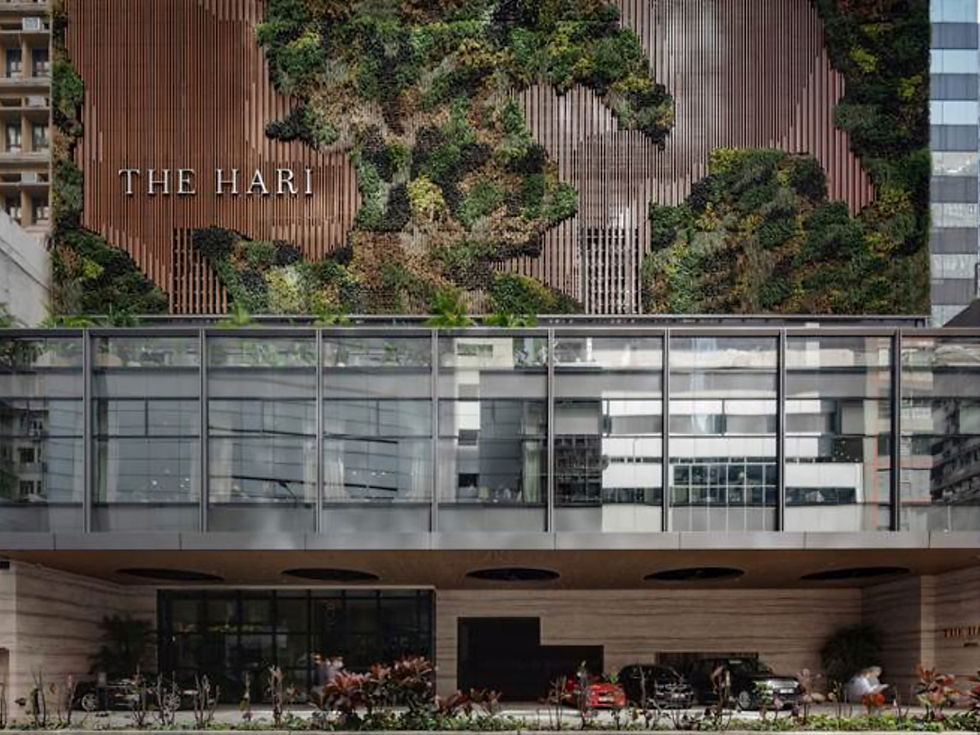Japanese retailer Life Corporation Targets ¥40 Billion in Sales for its natural supermarket chain BIO-RAL by 2030
- Yvonne Chang
- Mar 21, 2025
- 3 min read
Updated: Jul 3, 2025

Japanese retail giant Life Corporation has announced an ambitious strategic goal for its natural supermarket banner, BIO-RAL, targeting ¥40 billion in sales from 50 stores by the fiscal year 2030. The latest move in this expansion is the opening of a new store in Tokyo's prestigious Keio Department Store in Shinjuku, set for March 25, 2025.
An Ambitious Growth Strategy
The ¥40 billion sales target is the cornerstone of a major strategic push. To achieve this, Life Corporation plans to expand its private "BIO-RAL" brand to over 1,000 items. To accelerate this growth, the company established the BIO-RAL Business Division as an independent entity on March 1, 2024, giving it the focused leadership needed to drive the expansion.
Noriaki Unno, Executive Officer and Head of the BIO-RAL Business Division, noted the market's potential. "Compared to Europe and the US, Japan's organic market is small and has significant room for growth," he stated. Mr. Unno identified Life's key competitive advantage as its scale. With BIO-RAL corners already present in all of Life's approximately 300 supermarkets, the brand has immense reach and customer-facing power.

What is BIO-RAL? A "Natural Lifestyle" Supermarket
BIO-RAL is Life Corporation's specialty supermarket banner focused on natural and organic products. The name is a portmanteau of the German word "BIOLOGISCH" (organic) and the English word "NATURAL." Operating under the core concepts of "Organic, Local, Healthy, and Sustainable," BIO-RAL’s product range—which includes organic produce and deli items made with a 'clean label' approach—is designed to meet the growing consumer demand for foods with simple, recognizable ingredients.



For more information
BIO-RAL Natural Supermarket http://www.lifecorp.jp/store/bio-ral/
Life Corporation http://www.lifecorp.jp/
Industry Insight: Navigating Japan's Food Additive Regulations
For international food brands looking to enter the Japanese market, understanding the country's food additive regulations is critical. BIO-RAL's success is partly built on catering to consumer demand for products that align with these strict standards.
The "Positive List" System
Japan's Food Sanitation Act operates on a "positive list" system. This is the most important principle for any brand to understand: only substances that have been officially evaluated for safety and approved (designated) by the Ministry of Health, Labour and Welfare (MHLW) are permitted for use as food additives. Any substance not on this approved list cannot be manufactured, imported, or sold for use in food in Japan.
The MHLW classifies all legally permitted food additives into four distinct categories:
Designated Additives (指定添加物, Shitei Tenkabutsu): Primarily synthetic chemicals assessed and approved for safety.
Existing Food Additives (既存添加物, Kizon Tenkabutsu): Natural additives with a long history of use in Japan.
Natural Flavoring Agents (天然香料, Tennen Kōryō): Substances from natural sources used for flavoring.
Ordinary Foods Used as Additives (一般飲食物添加物, Ippan Inshokubutsu Tenkabutsu): Common foods used for an additive function (e.g., fruit juice for color).
The "Additive-Free" (Muteka) ClaimThe term "additive-free" (無添加, mutenka) is a marketing claim, not a formal regulatory category. To prevent misleading consumers, Japan's Consumer Affairs Agency (CAA) has established guidelines for these claims. For example, a product cannot claim to be "preservative-free" if it uses an ingredient that has a natural preservative effect (e.g., high salt content). This ensures that such claims are transparent and not deceptive.
For more information, brands should refer to the official resources from Japan's Consumer Affairs Agency.




Comments